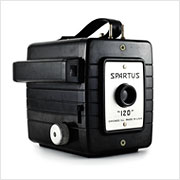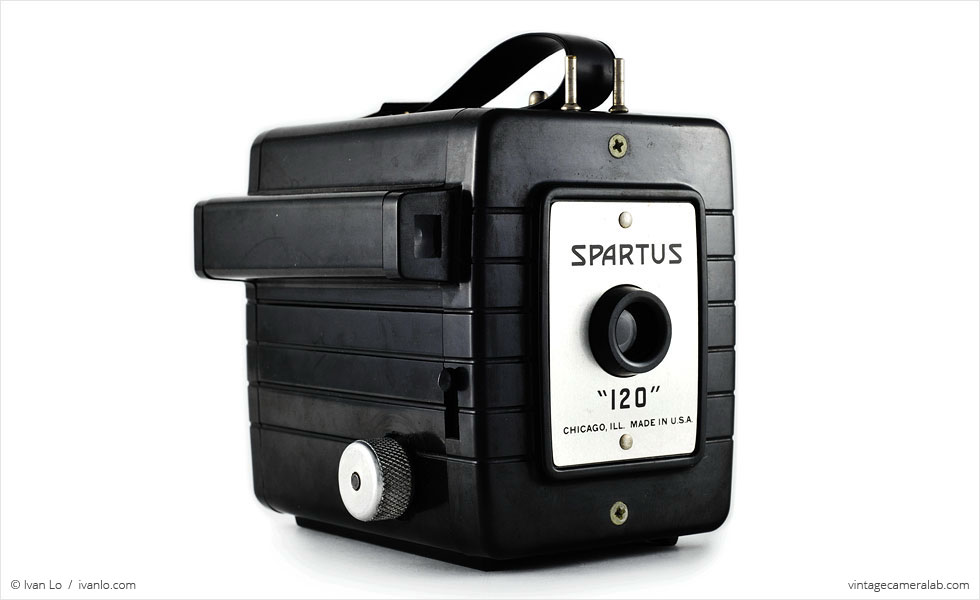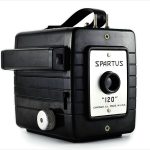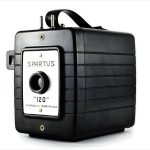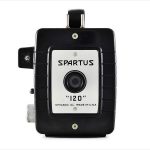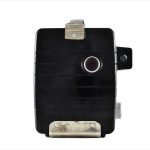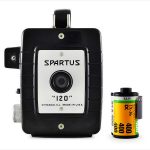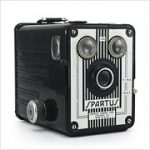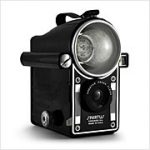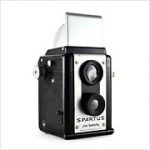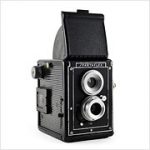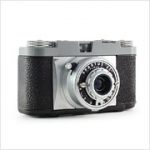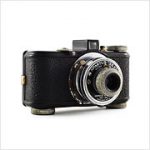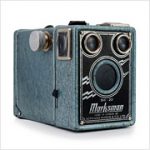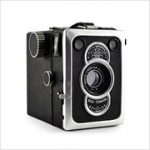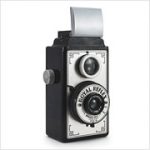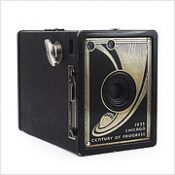Spartus 120 Specifications
| Manufacturer: | Spartus Camera Corp. |
| Origin: | USA |
| Made in: | Chicago, IL, USA |
| Introduced: | 1953 |
| Type: | Box, Viewfinder |
| Format: | 120 Film |
| Dimensions: | 9.5 x 11 x 12.1 cm |
Spartus 120 Overview
The Spartus 120 is a simple box camera made of an early type of plastic called Bakelite. At the time of the 120’s introduction, a great multitude of relatively inexpensive cameras (including the Spartus 35F) were being manufactured in Chicago by the same factories but sold under a puzzlingly broad range of different but related brands with Spartus being the cornerstone of it all. It should come as no surprise then that this very same camera was also sold as the Sunbeam 120 and that a brown-colored but otherwise identical variant was sold under the name “Spartus 120 Flash Camera.”
Like the vast majority of box cameras, the 120 is very simple and uses medium format film. Its lens is both fixed-focus and fixed-aperture and is mated to a single speed shutter located on the user’s right-hand side above the metal film advance knob. Located above the shutter lever and running the entire length of the body is a simple optical viewfinder. On the top plate, just forward of the carrying handle are two metal prongs that are designed to accept a variety of external flash units equipped with single-use bulbs.
I bought this Spartus 120 from a very nice lady who was selling her son’s camera collection for him after he had moved away. As I have mentioned before, my original intention was to only buy three cameras: a M.I.O.M. Photax III, an Agfa PD16 Clipper, and this Spartus 120 but, because I clearly have a disease, ended up buying a total of six including the Polaroid Big Shot.
Find your very own Spartus 120 on eBay.
McKeown, James M. and Joan C. McKeown’s Price Guide to Antique and Classic Cameras, 2001-2002. (Grantsburg, WI, USA: Centennial Photo Service, 2001), p 618.
“The Chicago Cluster,” Camera Wiki, http://camera-wiki.org/wiki/The_Chicago_Cluster
